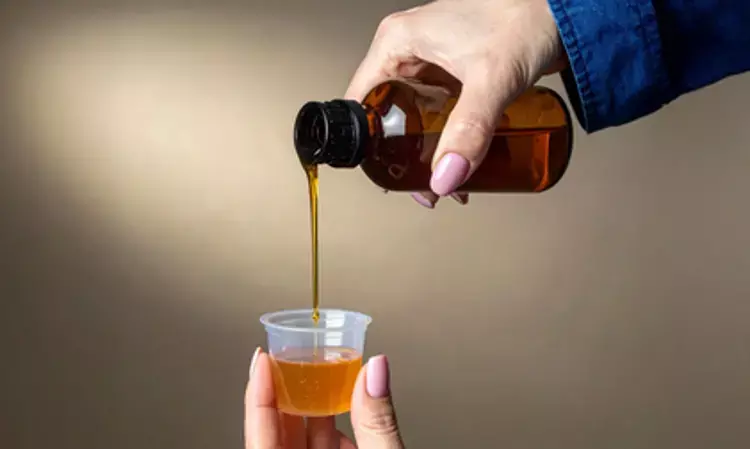- Home
- Medical news & Guidelines
- Anesthesiology
- Cardiology and CTVS
- Critical Care
- Dentistry
- Dermatology
- Diabetes and Endocrinology
- ENT
- Gastroenterology
- Medicine
- Nephrology
- Neurology
- Obstretics-Gynaecology
- Oncology
- Ophthalmology
- Orthopaedics
- Pediatrics-Neonatology
- Psychiatry
- Pulmonology
- Radiology
- Surgery
- Urology
- Laboratory Medicine
- Diet
- Nursing
- Paramedical
- Physiotherapy
- Health news
- Fact Check
- Bone Health Fact Check
- Brain Health Fact Check
- Cancer Related Fact Check
- Child Care Fact Check
- Dental and oral health fact check
- Diabetes and metabolic health fact check
- Diet and Nutrition Fact Check
- Eye and ENT Care Fact Check
- Fitness fact check
- Gut health fact check
- Heart health fact check
- Kidney health fact check
- Medical education fact check
- Men's health fact check
- Respiratory fact check
- Skin and hair care fact check
- Vaccine and Immunization fact check
- Women's health fact check
- AYUSH
- State News
- Andaman and Nicobar Islands
- Andhra Pradesh
- Arunachal Pradesh
- Assam
- Bihar
- Chandigarh
- Chattisgarh
- Dadra and Nagar Haveli
- Daman and Diu
- Delhi
- Goa
- Gujarat
- Haryana
- Himachal Pradesh
- Jammu & Kashmir
- Jharkhand
- Karnataka
- Kerala
- Ladakh
- Lakshadweep
- Madhya Pradesh
- Maharashtra
- Manipur
- Meghalaya
- Mizoram
- Nagaland
- Odisha
- Puducherry
- Punjab
- Rajasthan
- Sikkim
- Tamil Nadu
- Telangana
- Tripura
- Uttar Pradesh
- Uttrakhand
- West Bengal
- Medical Education
- Industry
Contaminated Cough Syrup horror: Centre proposes license cancellation of Coldrif maker, Tamil Nadu FDA yet to act

New Delhi: As outrage mounts over the deaths of more than 20 children linked to a contaminated cough syrup, the spotlight has now turned to Tamil Nadu's drug regulator, who have yet to take action against Sresan Pharmaceuticals, the manufacturer of the toxic product.
According to Health Ministry sources, while the central government has proposed cancellation of the license of Tamil Nadu-based company, the final decision lies with the state drug controller.
The cough syrup in question, Coldrif, produced in Kancheepuram, has been linked to the deaths of over 20 children in Madhya Pradesh and Rajasthan.
On October 2, the Tamil Nadu drug control authorities declared that the Coldrif syrup sample they tested was adulterated. The sample contained diethylene glycol (48.6 per cent w/v), a poisonous substance "which may render the contents injurious to health", the report said.
Following the reports, several states, including Tamil Nadu, Kerala, Madhya Pradesh, Punjab, and Arunachal Pradesh, have banned the sale of Coldrif cough syrups. Others, such as Telangana, Karnataka, and Maharashtra, have issued an alert.
As per IANS, sources from the Health Ministry said that CDSCO has already recommended cancellation of the license for the faulty drug maker, but the final call must be taken by the Tamil Nadu FDA.
“Form 25 or a license to manufacture common formulation allopathic drugs is given by the state drug controllers and is governed by them. The cancellation too has to be done by the state drug controller,” the sources said.
It added that the “CDSCO has already recommended cancellation of license for the firm in question after the presence of DEG in 'Coldrif' was confirmed”.
Diethylene Glycol (DEG) is a toxic substance linked with injury to the kidneys.
Inspection by the CDSCO found unbilled containers of DEG at Srisan Pharma's factory. The company was reportedly adding 46-48 per cent of DEG to cough syrup against the permitted limit of only 0.1 per cent.
Meanwhile, in an advisory issued to all states and union Territories, the Director General of Health Services (DGHS) Dr. Sunita Sharma urged the rational use of cough syrups in the paediatric population.
“Cough and cold medications should not be prescribed or dispensed to children under 2 years.”
“Most acute cough illnesses in children are self-limiting and often resolve without pharmacological intervention,” said Sharma, adding that cough and cold medications “are generally not recommended for ages below 5 years”.
It should be used “following careful clinical evaluation with close supervision and strict adherence to appropriate dosing, the shortest effective duration, and avoiding multiple drug combinations”.
Medical Dialogues Bureau consists of a team of passionate medical/scientific writers, led by doctors and healthcare researchers. Our team efforts to bring you updated and timely news about the important happenings of the medical and healthcare sector. Our editorial team can be reached at editorial@medicaldialogues.in.


